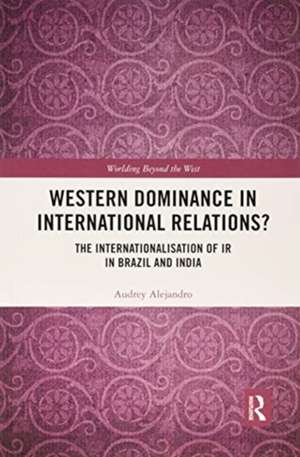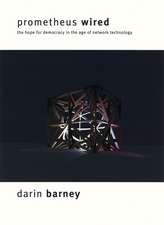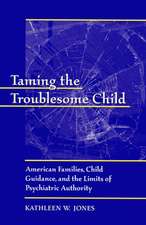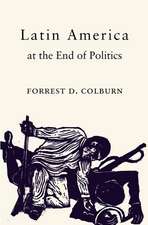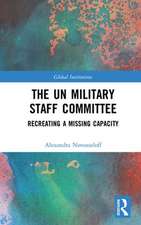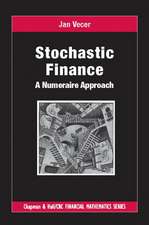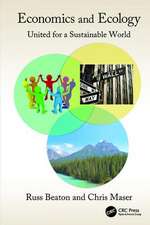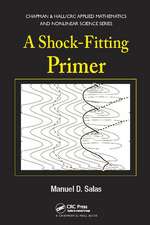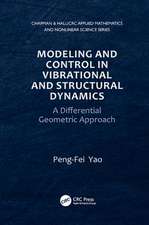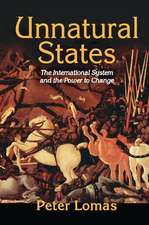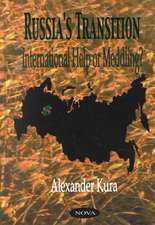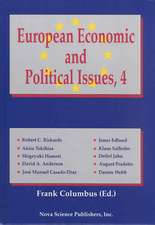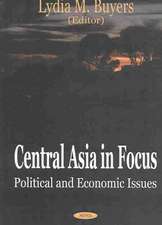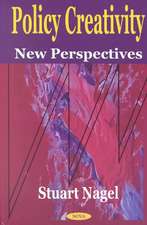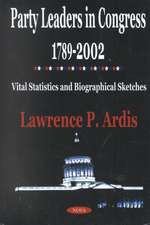Western Dominance in International Relations?: The Internationalisation of IR in Brazil and India: Worlding Beyond the West
Autor Audrey Alejandroen Limba Engleză Paperback – 28 apr 2020
This volume offers a counter-intuitive and original contribution to the understanding of the global circulation of knowledge. In contrast to the literature, it argues that the internationalisation of social sciences in the designated 'Global South' is not conditioned by the existence of a presumably 'Western dominance'. Indeed, although discriminative practices such as Eurocentrism and gate-keeping exist, their existence does not lead to a unipolar structuration of IR internationalisation around ‘the West’. Based on these empirical results, this book reflexively questions the role of critique in the (re)production of the social and political order. Paradoxically, the anti-Eurocentric critical discourses reproduce the very Eurocentrism they criticise. This book offers methodological support to address this paradox by demonstrating how one can use discourse analysis and reflexivity to produce innovative results and decentre oneself from the vision of the world one has been socialised into.
This work offers an insightful contribution to International Relations, Political Theory, Sociology and Qualitative Methodology. It will be useful to all students and scholars interested in critical theories, international political sociology, social sciences in Brazil and India, knowledge and discourse, Eurocentrism, as well as the future of reflexivity.
| Toate formatele și edițiile | Preț | Express |
|---|---|---|
| Paperback (1) | 389.66 lei 6-8 săpt. | |
| Taylor & Francis – 28 apr 2020 | 389.66 lei 6-8 săpt. | |
| Hardback (1) | 764.69 lei 6-8 săpt. | |
| Taylor & Francis – 19 sep 2018 | 764.69 lei 6-8 săpt. |
Din seria Worlding Beyond the West
-
 Preț: 309.50 lei
Preț: 309.50 lei -
 Preț: 310.60 lei
Preț: 310.60 lei -
 Preț: 303.31 lei
Preț: 303.31 lei -
 Preț: 288.80 lei
Preț: 288.80 lei -
 Preț: 283.67 lei
Preț: 283.67 lei -
 Preț: 288.67 lei
Preț: 288.67 lei -
 Preț: 300.99 lei
Preț: 300.99 lei -
 Preț: 386.13 lei
Preț: 386.13 lei - 17%
 Preț: 258.50 lei
Preț: 258.50 lei - 18%
 Preț: 1000.27 lei
Preț: 1000.27 lei - 17%
 Preț: 247.40 lei
Preț: 247.40 lei - 26%
 Preț: 846.92 lei
Preț: 846.92 lei - 17%
 Preț: 270.75 lei
Preț: 270.75 lei -
 Preț: 393.93 lei
Preț: 393.93 lei - 18%
 Preț: 1006.77 lei
Preț: 1006.77 lei -
 Preț: 385.25 lei
Preț: 385.25 lei -
 Preț: 385.80 lei
Preț: 385.80 lei -
 Preț: 462.60 lei
Preț: 462.60 lei -
 Preț: 447.76 lei
Preț: 447.76 lei - 9%
 Preț: 934.38 lei
Preț: 934.38 lei - 18%
 Preț: 1000.27 lei
Preț: 1000.27 lei -
 Preț: 389.66 lei
Preț: 389.66 lei - 26%
 Preț: 819.09 lei
Preț: 819.09 lei -
 Preț: 389.66 lei
Preț: 389.66 lei - 18%
 Preț: 726.42 lei
Preț: 726.42 lei - 17%
 Preț: 245.56 lei
Preț: 245.56 lei - 12%
 Preț: 325.34 lei
Preț: 325.34 lei - 26%
 Preț: 764.69 lei
Preț: 764.69 lei - 13%
 Preț: 310.73 lei
Preț: 310.73 lei - 26%
 Preț: 763.95 lei
Preț: 763.95 lei - 26%
 Preț: 764.62 lei
Preț: 764.62 lei - 18%
 Preț: 1177.10 lei
Preț: 1177.10 lei
Preț: 389.66 lei
Nou
Puncte Express: 584
Preț estimativ în valută:
74.57€ • 77.65$ • 63.02£
74.57€ • 77.65$ • 63.02£
Carte tipărită la comandă
Livrare economică 07-21 martie
Preluare comenzi: 021 569.72.76
Specificații
ISBN-13: 9780367540104
ISBN-10: 036754010X
Pagini: 220
Ilustrații: 5 Line drawings, black and white; 5 Illustrations, black and white
Dimensiuni: 156 x 234 x 17 mm
Greutate: 0.45 kg
Ediția:1
Editura: Taylor & Francis
Colecția Routledge
Seria Worlding Beyond the West
Locul publicării:Oxford, United Kingdom
ISBN-10: 036754010X
Pagini: 220
Ilustrații: 5 Line drawings, black and white; 5 Illustrations, black and white
Dimensiuni: 156 x 234 x 17 mm
Greutate: 0.45 kg
Ediția:1
Editura: Taylor & Francis
Colecția Routledge
Seria Worlding Beyond the West
Locul publicării:Oxford, United Kingdom
Public țintă
Postgraduate and UndergraduateCuprins
Introduction, Chapter 1: Diversity, Chapter 2: Regarding Internationalisation, Chapter 3: The Non-role of "the West", Chapter 4: The National and the International, Chapter 5: Discursive Entanglements, Chapter 6: The Recursive Paradox, Conclusion
Notă biografică
Audrey Alejandro is Assistant Professor at the Department of Methodology, London School of Economics and Political Science.
Recenzii
"The book’s demonstration is fascinating and bolstered by a clear prose. It persuasively uses an impressive range of empirical data such as statistics on publications, academic CVs, academic promotion criteria, and interviews. It is also remarkable in its continuous deployment of a theoretical apparatus that taps into anthro-pology, sociology, and critical studies." - Benjamin Chemouni, University of Cambridge
"Alejandro’s book is both methodologically rigorous and intellectually challenging, providing a powerful critique of the emerging Global IR literature...a highly thought-provoking book, which challenges critical IR scholars to re-embrace methodological rigour and continue to question their foundational assumptions." - Farai Chipato, Cambridge Review of International Affairs, 2020
"…….what Alejandro stresses throughout her book is that ‘we [need] to act upon something that we can actually change,’ and that ‘something’ is practice, our institutional practices. This would be the challenge ahead of us in the Global South when it comes to overcoming ‘Western domination’: overcoming our own limitations and prejudices. Alejandro’s book is a sound contribution to that challenge and a must-read for all Brazilian scholars who dare to walk that path." - Hugo Arend, Contexto Internacional, 2020.
"Alejandro’s book is both methodologically rigorous and intellectually challenging, providing a powerful critique of the emerging Global IR literature...a highly thought-provoking book, which challenges critical IR scholars to re-embrace methodological rigour and continue to question their foundational assumptions." - Farai Chipato, Cambridge Review of International Affairs, 2020
"…….what Alejandro stresses throughout her book is that ‘we [need] to act upon something that we can actually change,’ and that ‘something’ is practice, our institutional practices. This would be the challenge ahead of us in the Global South when it comes to overcoming ‘Western domination’: overcoming our own limitations and prejudices. Alejandro’s book is a sound contribution to that challenge and a must-read for all Brazilian scholars who dare to walk that path." - Hugo Arend, Contexto Internacional, 2020.
Descriere
This volume offers a counter-intuitive and original contribution to the understanding of the global circulation of knowledge. Contrary to what is commonly accepted, it argues that the internationalisation of social sciences in the designated "Southern" countries is not conditioned by the existence of a presumably "Western dominance".
